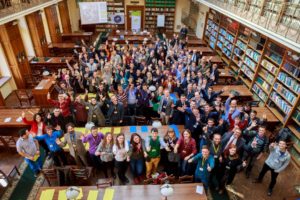Famelab is a science communication competition with the aim of entertain by talking science. Since its launch in 2005 in Cheltenham (UK) Famelab has become the world’s biggest communication contest for scientists, and today the event includes more than thirty countries. This challenge is open to young researchers, university students and anyone involved in science who loves talking about a scientific topic in an effective way. In fact, the competitors have only three minutes to tell the object of their research activity or a fascinating scientific topic to a heterogeneous public (researchers, university and high-school students, families…), only with the help of their communication skills and small objects of everyday life. In each local contest, the “famelabers” are judged by a selected jury (scientists, communicators, journalists…). The jury choose the two winners who will participate to the “masterclass”, a three-days training event with professional science communicator, and then to the national and, eventually, international competition.
Since 2017 Catania is one of the italian selection sites for Famelab, and for the second year EPS Young Minds team has been directly involved in the organization of the event as major sponsor, providing also technical support services. In particular, based on the big success of the 2017 edition in terms of participants and feedbacks from the public, in 2018 the YM section proposed a new three-days format for the local event: two semi-finals and the final contest. In each day, the YM section and invited a high-profile scientist to be part of the jury, and to do a seminar about frontier research topics at the end of contest. The three invited high-level scientists were:
- Barbara Mazzolai, Director of the Center for Micro-BioRobotics of the IIT (Istituto Italiano di Tecnologia), who talked about bioinspired robotics and the future of robotics.
- Luigi Cattivelli, Director of the Genomics Research Center of the Agrigultural Research Council, who presented his research activity on genetics and molecular biology of cereals.
- Eugenio Coccia, Rector of the Gran Sasso Science Institute and one of the authors of the discovery gravitational waves and of the first observation of black holes, who talked about the born of a new astronomy with gravitational waves.
At the beginning and at the end of the three presentations, the speakers did not lose the opportunity to acknowledge the YM section and in general the YM philosophy. A great participation of scientists and students was appreciated not only during the contest but also during the presentations, and there were also strong interactions with the three speakers, moderated and catalysed by the YM members.

![report_famelab_6[1]](http://www.epsyoungminds.org/wp-content/uploads/2018/04/report_famelab_61-300x200.jpg)
![report_famelab_5[1]](http://www.epsyoungminds.org/wp-content/uploads/2018/04/report_famelab_51-300x225.jpg)
![report_famelab_4[1]](http://www.epsyoungminds.org/wp-content/uploads/2018/04/report_famelab_41-225x300.jpg)
![report_famelab_3[1]](http://www.epsyoungminds.org/wp-content/uploads/2018/04/report_famelab_31-169x300.jpg)
![report_famelab_2[1]](http://www.epsyoungminds.org/wp-content/uploads/2018/04/report_famelab_21-225x300.jpg)
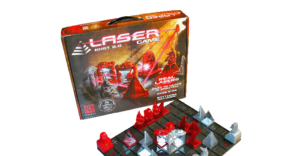 On November 28th 2017 in the evening, our student chapter DTU-Lys held a competition in the board game KHET, which is a complicated form of Chess, but with laser beams. Our student chapter owns 4 of these board games – a perfect number for hosting a competition with both group stages and knock-out rounds! The winner of the tournament was on beforehand promised a DTU-Lys t-shirt, which we had recently acquired a number of for outreach purposes. In total, this evening event numbered around 30 participants, with a good mix of Master students and PhD students.
On November 28th 2017 in the evening, our student chapter DTU-Lys held a competition in the board game KHET, which is a complicated form of Chess, but with laser beams. Our student chapter owns 4 of these board games – a perfect number for hosting a competition with both group stages and knock-out rounds! The winner of the tournament was on beforehand promised a DTU-Lys t-shirt, which we had recently acquired a number of for outreach purposes. In total, this evening event numbered around 30 participants, with a good mix of Master students and PhD students.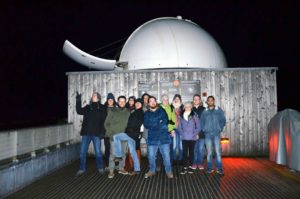 On November 18th, SCOPE organised a night trip to the Scottish Dark Sky Observatory (SDSO) located in the edge of the Galloway Forest in Ayrshire.
On November 18th, SCOPE organised a night trip to the Scottish Dark Sky Observatory (SDSO) located in the edge of the Galloway Forest in Ayrshire.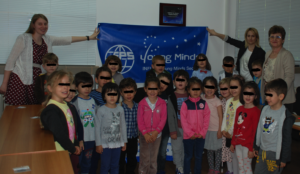
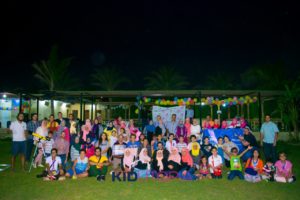 EPS Cairo young minds section contributed to an inspiring event for innovative kids called “Kidutopia”. About fifty kids (from five to sixteen years old) attended this event which is the first event that combines sciences, sports and educational consultations for kids in Egypt. This event had many non-governmental organizations that cooperated with us to give these kids an outreaching in different activities. The YM Cairo section organized and implemented simple experiments relating to various motivating physical phenomenon through enjoyable activates. These experiments included optical illusion, water lens and light refraction in addition to some simple optical activities using a laser kit game. This event had a positive impact on the kids through the participation of the children in performing these experiments. Moreover, this event was very exciting to the section members as it served an extremely important part of the community: Kids
EPS Cairo young minds section contributed to an inspiring event for innovative kids called “Kidutopia”. About fifty kids (from five to sixteen years old) attended this event which is the first event that combines sciences, sports and educational consultations for kids in Egypt. This event had many non-governmental organizations that cooperated with us to give these kids an outreaching in different activities. The YM Cairo section organized and implemented simple experiments relating to various motivating physical phenomenon through enjoyable activates. These experiments included optical illusion, water lens and light refraction in addition to some simple optical activities using a laser kit game. This event had a positive impact on the kids through the participation of the children in performing these experiments. Moreover, this event was very exciting to the section members as it served an extremely important part of the community: Kids During the winter semester of 2017, a follow-up of the previous semester’s Physics Café was organised as one of the Prague EPS Young Minds events. This time, the aim of the Physics Café project was to further enhance the achievements gained during the first volume of Physics Café i.e. to provide a platform for informal meetings of university students and (senior) scientists and people from academia, with a strong emphasis on informality, and to promote physics and physics related scientific fields among the students.
During the winter semester of 2017, a follow-up of the previous semester’s Physics Café was organised as one of the Prague EPS Young Minds events. This time, the aim of the Physics Café project was to further enhance the achievements gained during the first volume of Physics Café i.e. to provide a platform for informal meetings of university students and (senior) scientists and people from academia, with a strong emphasis on informality, and to promote physics and physics related scientific fields among the students.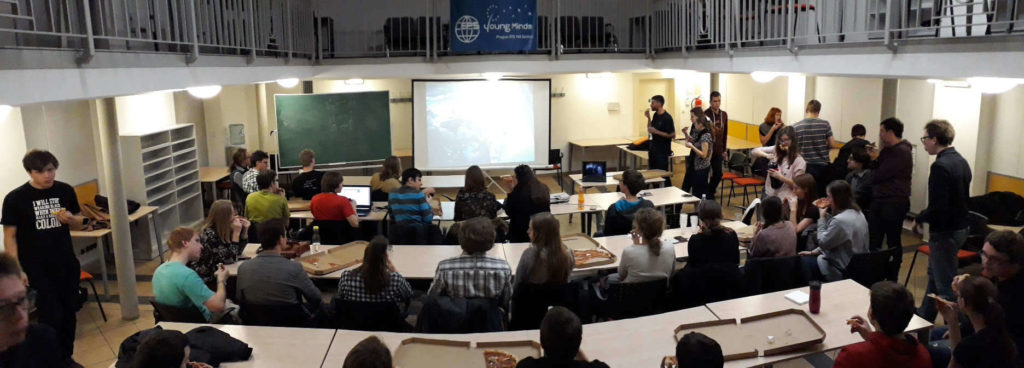
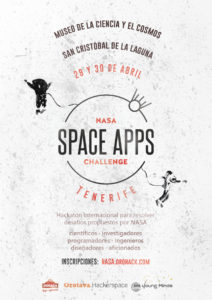 Since its inception in 2012, the International Space Apps Challenge, a part of NASA’s Earth Science Division, has become the world’s largest global hackathon, engaging thousands of citizens each year across the globe to work with NASA in building innovative solutions challenges we face on Earth and in space using open source data. Space Apps inspires local innovation communities in cities across six continents to convene, ideate and build. Diverse and collaborative teams of technologists, scientists, designers, entrepreneurs, and others work together in a 48-hour sprint to develop answers to some of the most pressing challenges facing planet Earth using NASA data. Over 25,000 citizens from 69 countries and in 187 cities around the world participated in the 2017 International Space Apps Challenge.
Since its inception in 2012, the International Space Apps Challenge, a part of NASA’s Earth Science Division, has become the world’s largest global hackathon, engaging thousands of citizens each year across the globe to work with NASA in building innovative solutions challenges we face on Earth and in space using open source data. Space Apps inspires local innovation communities in cities across six continents to convene, ideate and build. Diverse and collaborative teams of technologists, scientists, designers, entrepreneurs, and others work together in a 48-hour sprint to develop answers to some of the most pressing challenges facing planet Earth using NASA data. Over 25,000 citizens from 69 countries and in 187 cities around the world participated in the 2017 International Space Apps Challenge.